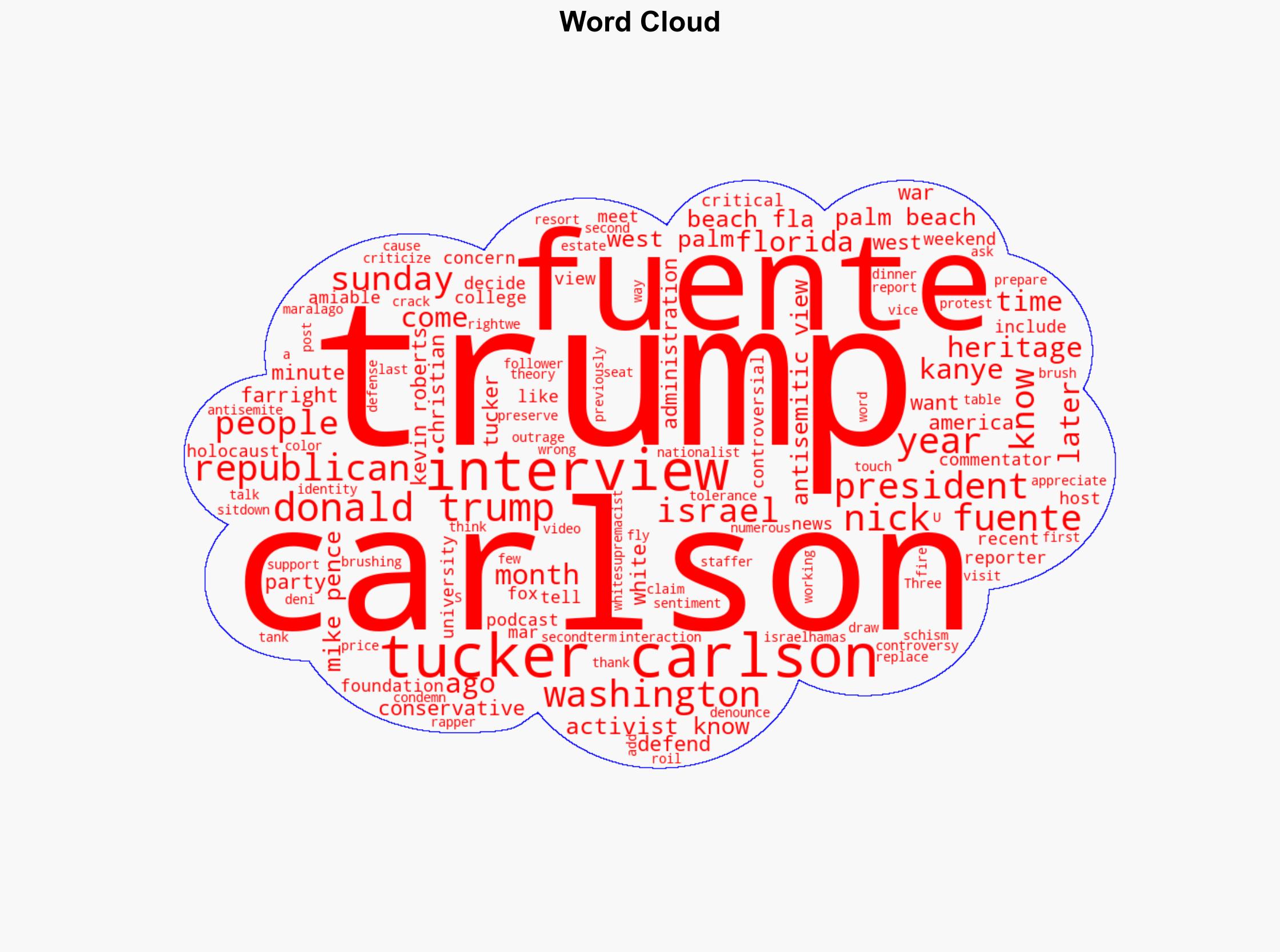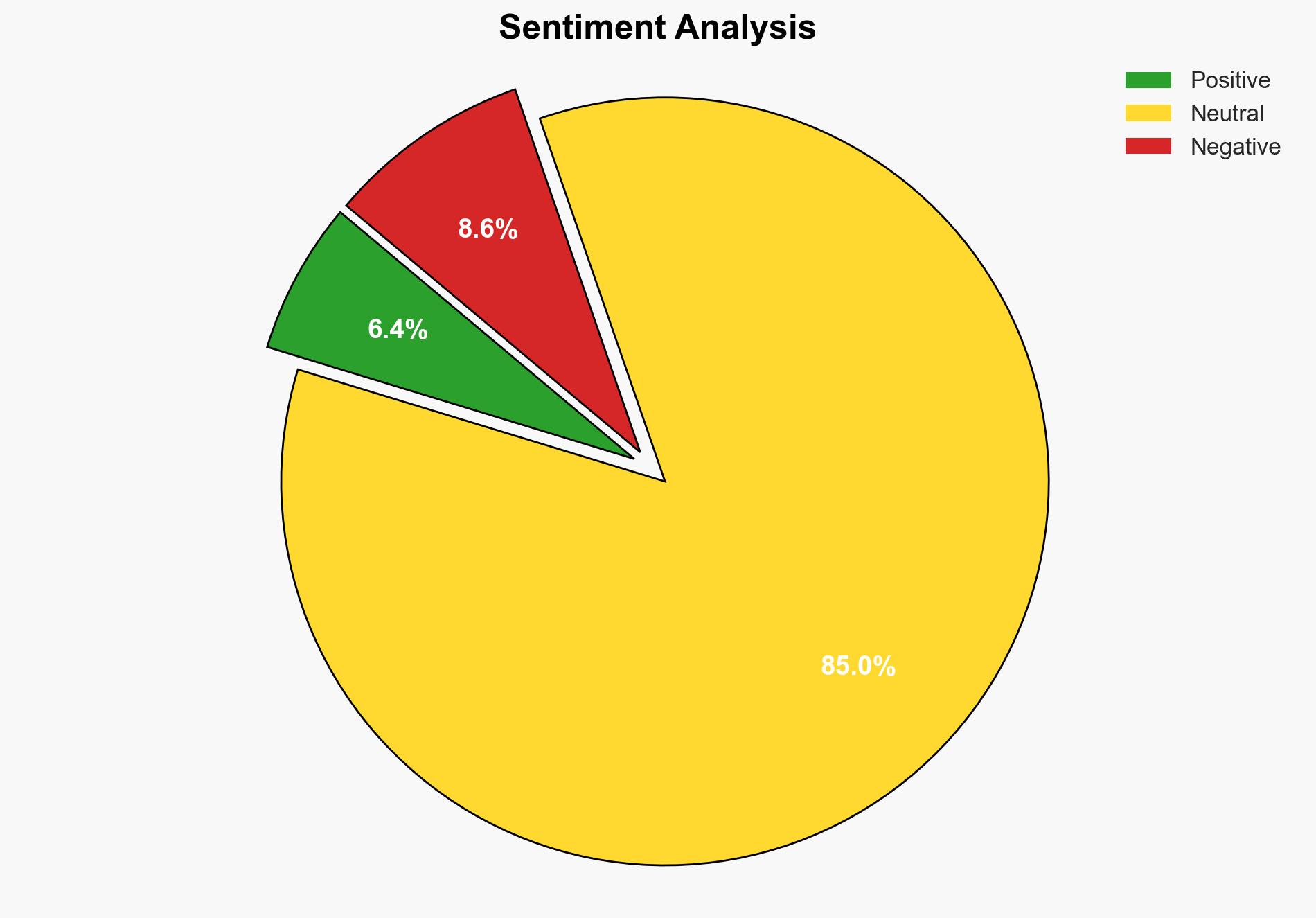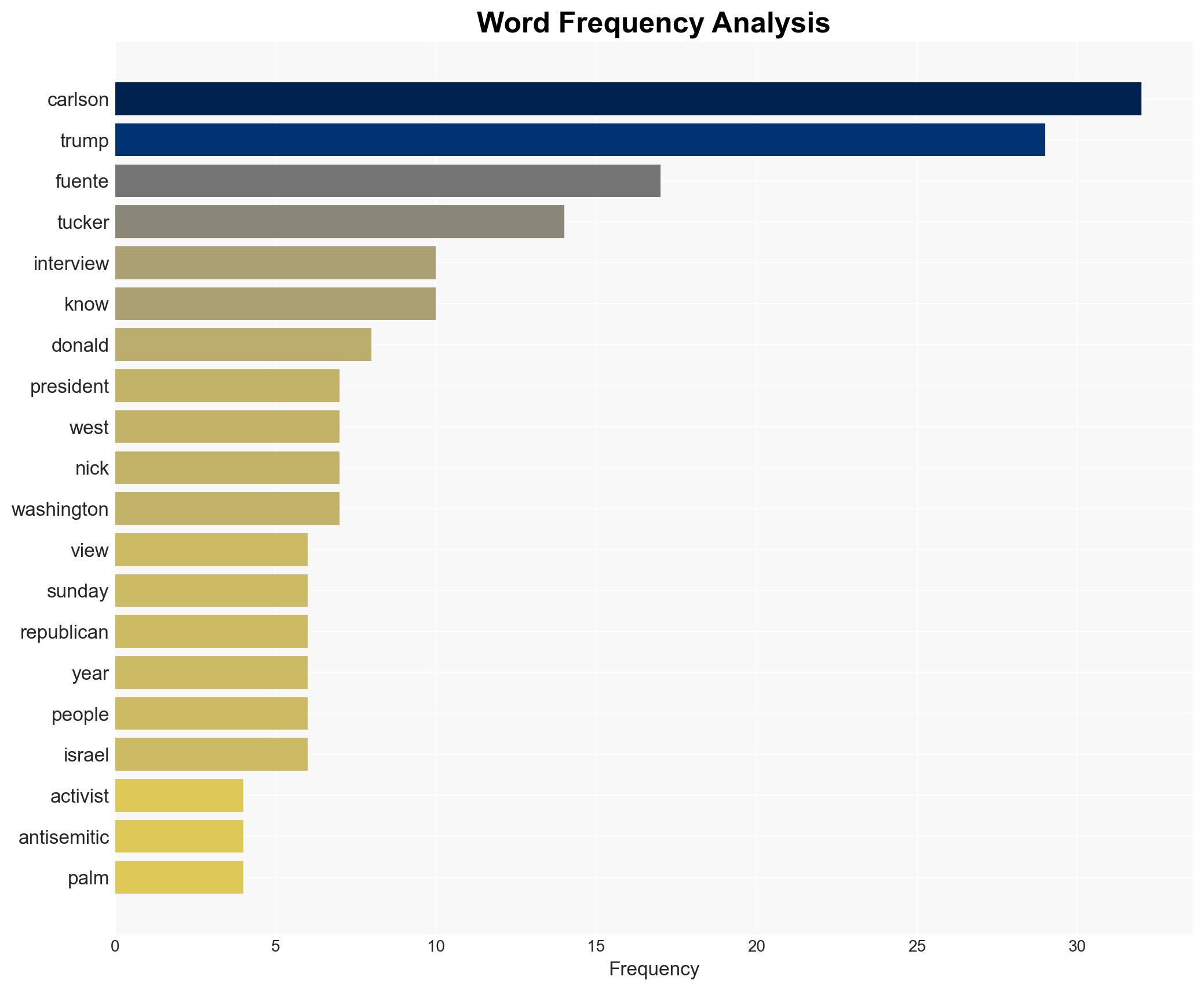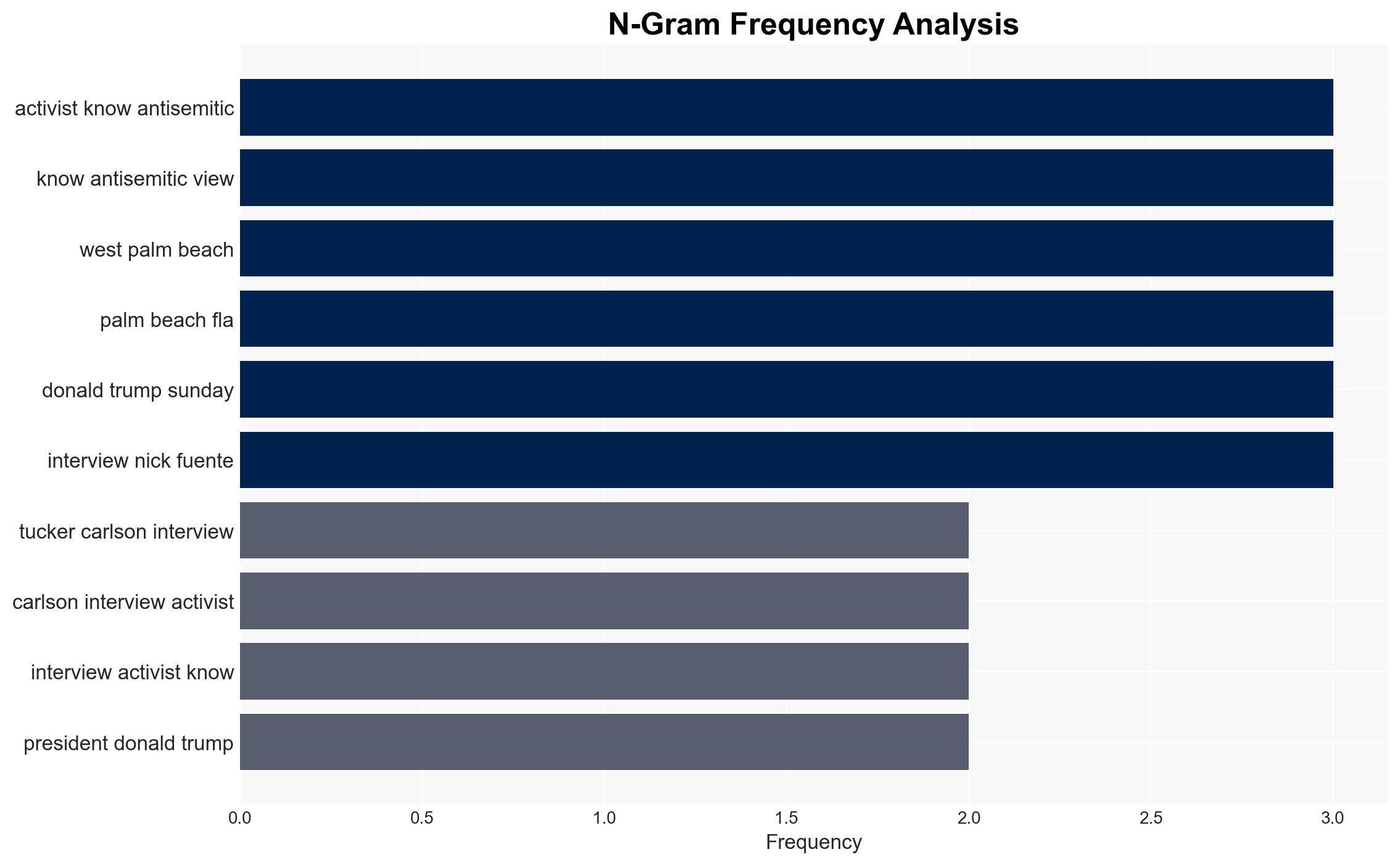Trump defends Tucker Carlson after interview with activist known for his antisemitic views – ABC News
Published on: 2025-11-17
AI-powered OSINT brief from verified open sources. Automated NLP signal extraction with human verification. See our Methodology and Why WorldWideWatchers.
Intelligence Report:
1. BLUF (Bottom Line Up Front)
With a moderate confidence level, it is assessed that Donald Trump’s defense of Tucker Carlson’s interview with Nick Fuentes is primarily a strategic move to maintain influence over the far-right base within the Republican Party. This action could further polarize the party and complicate its internal dynamics. Recommended action includes monitoring shifts in Republican Party alliances and public sentiment to anticipate potential political realignments.
2. Competing Hypotheses
Hypothesis 1: Trump’s defense of Carlson is a deliberate strategy to solidify his influence over the far-right faction of the Republican Party, ensuring continued support from this base.
Hypothesis 2: Trump’s defense is primarily reactionary, aimed at mitigating immediate backlash and maintaining media relevance, rather than a calculated long-term strategy.
Hypothesis 1 is more likely due to Trump’s historical pattern of aligning with controversial figures to galvanize his core supporters, despite potential backlash from mainstream Republicans.
3. Key Assumptions and Red Flags
Assumptions: It is assumed that Trump is aware of the potential divisive impact of his defense on the Republican Party. It is also assumed that the far-right base remains a significant and influential segment of his support.
Red Flags: The potential for deception exists if Trump’s public statements are intended to mislead about his true intentions or alliances. Bias risks include underestimating the influence of far-right ideologies within the broader political landscape.
4. Implications and Strategic Risks
The defense of Carlson could exacerbate existing divisions within the Republican Party, leading to a potential schism. This could weaken the party’s cohesion and electoral prospects. Additionally, the normalization of extremist views could embolden similar rhetoric, increasing societal polarization and potential for civil unrest.
5. Recommendations and Outlook
- Monitor shifts in public opinion and party dynamics to identify emerging factions within the Republican Party.
- Engage with moderate Republican leaders to assess their strategies for addressing internal divisions.
- Best-case scenario: The party successfully navigates internal tensions, maintaining unity while marginalizing extremist views.
- Worst-case scenario: A significant factional split occurs, weakening the party’s electoral prospects and increasing societal polarization.
- Most-likely scenario: Continued tension with episodic flare-ups, but no immediate large-scale schism.
6. Key Individuals and Entities
Donald Trump, Tucker Carlson, Nick Fuentes, Kevin Roberts, Mike Pence
7. Thematic Tags
Regional Focus, Regional Focus: United States
Structured Analytic Techniques Applied
- Causal Layered Analysis (CLA): Analyze events across surface happenings, systems, worldviews, and myths.
- Cross-Impact Simulation: Model ripple effects across neighboring states, conflicts, or economic dependencies.
- Scenario Generation: Explore divergent futures under varying assumptions to identify plausible paths.
Explore more:
Regional Focus Briefs ·
Daily Summary ·
Support us
·





